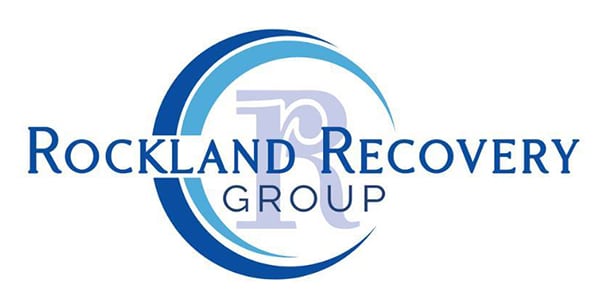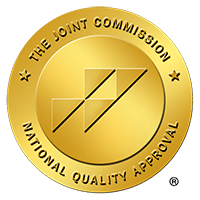As someone who is recovering from addiction, achieving sobriety is a significant, meaningful milestone. However, anyone who has ever gone through the recovery journey knows that it doesn’t end there. Sobriety is a lifelong goal, and it requires continual effort and resilience to maintain it.
This involves more than just avoiding addictive substances but also embracing a mindset and lifestyle that supports sobriety for the long term. At Rockland Recovery, we’re experienced in helping individuals achieve recovery and learn how to stay sober for the journey ahead.
7 Tips for How to Stay Sober After Addiction Recovery Treatment
Before diving into the important tips for staying sober after addiction, Rockland Recovery Group wants you to know that help and support are always available. We invite you to reach out to us directly for support. We also recommend the Substance Abuse and Mental Health Services Administration (SAMHSA) website as one of the best places for addiction and recovery resources.
A Strong Support System for Lasting Recovery
One of the most valuable assets for staying sober is a strong support system. Surrounding yourself with supportive family, loved ones, and friends who respect your journey and commitment to sobriety can make all the difference.
At Rockland Recovery, we recognize that not everyone who is recovering from addiction has access to a reliable support network. We offer group therapy options for ongoing support in sobriety and also encourage individuals to explore other options in the recovery community. These types of peer support are important for providing a sense of belonging and community with those who have shared experiences.
Develop Healthy Coping Mechanisms
Learning how to handle stress and difficult emotions in a healthy and constructive way is crucial to maintaining sobriety. These skills are learned and practiced during addiction recovery therapies, such as cognitive behavioral therapy. Continuing to develop and practice these strategies is key for dealing with difficult emotions and situations as they arise.
Know Your Triggers and How to Manage Them
Each person who has been through addiction recovery has certain triggers that, when exposed to them, can increase the risk of relapse. Triggers can come in the form of emotions, situations, places, or people. The danger of triggers is that exposure to them can prompt the desire for substance use.
Knowing what your triggers are is a non-negotiable for maintaining sobriety. Knowing and recognizing those triggers can help you either avoid or manage them in a healthy, effective way. Taking steps like planning ahead for the potential exposure to triggers and having an exit strategy in place is important for managing their impact on your well-being. It’s equally important to understand that some triggers can’t be avoided entirely. In these situations, practicing mindfulness and grounding strategies can help you manage their impact.
Make Mental and Physical Health a Priority
The connection between addiction and mental health has been strongly established. For many, maintaining sobriety involves prioritizing mental health care and seeking ongoing treatment for any co-occurring mental health disorders. Rockland Recovery offers dual diagnosis therapy for individuals who are struggling with mental health disorders while also working through addiction recovery.
Physical health is also important in long-standing recovery. Getting regular, quality sleep is important. Exercise and a nutritionally balanced diet are essential for supporting the body and reducing physical stress and illness.
Take It One Step at a Time
Sobriety is a goal, but it’s one that is always moving. It’s important to see long-term sobriety as a marathon, rather than a sprint. It should be a goal you can always see and work toward in the future. Sobriety is something that should never be taken for granted. It took hard work and resilience to arrive at this point, requiring those same characteristics to maintain.
Managing sobriety by taking one step at a time can be more manageable and less overwhelming. Find ways to help you make it through one day at a time. This might include building positive habits, maintaining a healthy daily routine, learning new skills or interests, and considering each day a fresh start.
Celebrate Progress
Honestly, the work that goes into sobriety is an effort that deserves to be celebrated every day. However, celebrating sobriety milestones, whether they are big or small, is important for reinforcing one’s commitment to maintaining soberness.
Milestones can be anything that feels right to the person in recovery. They might be celebrating a certain day with special significance or each new month or year as a sober person. It’s important to have both small and large milestones to celebrate.
Get Help When You Need It
Being sober doesn’t mean a person will never need addiction recovery support again. Recovery and maintaining sobriety is challenging. It’s ok, and completely normal, to need help along the way. Recognizing that additional support is needed is important for avoiding relapse.
Seeking individual or group therapy can help keep the focus on continued recovery and prevent any current struggles from escalating.
Support for Sobriety in Massachusetts
Staying sober requires a continual commitment to your addiction recovery. It’s common to experience a step backward among all the steps forward. Having a tool kit of sobriety strategies can help you stay the course and maintain a life free of addiction.
When you need help maintaining sobriety, Rockland Recovery is here to help. Through continual individual and group therapy, we offer the support and tools to maintain sobriety. Contact Rockland Recovery today at 888-299-4833 to learn more about how to help.






